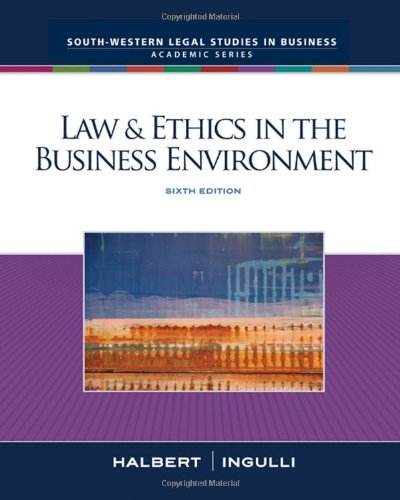Mentioned in the Echazabal case is International Union v. Johnson Controls, 111 S.Ct. 1196, a 1991 Supreme
Question:
Mentioned in the Echazabal case is International Union v. Johnson Controls, 111 S.Ct.
1196, a 1991 Supreme Court decision in which, again, a company was accused of paternalism for restricting access to hazardous jobs. In Johnson Controls, fertile women were not permitted to work on a battery-making production line where exposure to lead could cause harm to their offspring. The Supreme Court held that this restriction amounted to illegal sex discrimination under Title VII, stating that the female workers should “not be forced to choose between having a child and having a job.” The company had argued it was concerned about harm to future generations, but the Court wrote: “Decisions about the welfare of future children must be left to the parents who conceive, bear, support and raise them rather than to the employers who hire those parents.” Is there a group of stakeholders (affected individuals) whose preferences have not been considered in the Johnson Controls case? How might the absence of such voices alter an ethical analysis of this situation?
Mario Echazabal sues over not getting a job handling liver-toxic substances, i.e., “hydrocarbon liquids and vapors, acid, caustic, refinery waste water and sludge, petroleum solvents, oils, greases, and chlorine bleach.” He was denied the job because he suffers from a chronic, uncorrectable, and life-threatening viral liver disease, Hepatitis C, that most likely will be aggravated by exposure to these hazardous materials to the extent that his life will be endangered.
[Under the ADA, employers are not required to hire disabled individuals unless they are “otherwise qualified” to handle the “essential functions” of the job.] … Mr. Echazabal simply is not “otherwise qualified” for the work he seeks. Why? Because the job most probably will endanger his life. I do not understand how we can claim he can perform the essential functions of the position he seeks when precisely because of his disability, those functions may kill him. To ignore this reality is bizarre.…
Our law books, both state and federal, overflow with statutes and rules designed by representative governments to protect workers from harm long before we rejected the idea that workers toil at their own peril in the workplace. “Paternalism” here is just an abstract out-of-place label of no analytical help. Whether paternalism or maternalism, the concept is pernicious when it is allowed to dislodge longstanding laws mandating workplace safety. That battle was fought and lost long ago in our legislatures. In many jurisdictions, it is a crime knowingly to subject workers to life-endangering conditions.… In effect, we repeal these laws with respect to [Echazabal], and to other workers in similar situations. So much for OSHA. Now, our laws give less protection to workers known to be in danger than they afford to those who are not. That seems upside down and backwards.
Precisely the workers who need protection can sue because they receive what they need.…
Step by Step Answer:

Law And Ethics In The Business Environment
ISBN: 9780324657326
6th Edition
Authors: Terry Halbert , Elaine Ingulli





